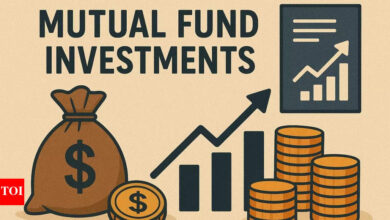Four lessons from Australia’s high net worth investors article

As an example, Chowdhury says that earlier in the year there was an increased interest in investing in supermarkets as it is a sector that will continue to perform during an economic downturn. “It’s a fairly safe bet that even in erratic times grocery stores will remain open,” he adds.
Healthcare also became enormously popular, with Citi figures showing a 145% increase in investment over the first half of this year compared to the same period in 2019. “This is a defensive sector, and will continue to attract flows from not just public and private markets, but also from governments,” says Chowdhury.
Increased diversification
While high net worth investors will retain exposure to the three asset classes favoured by the average Australian investor, they generally have more diverse portfolios.
The 2019 Powerwrap/Investment Trends HNW Investor report found there was growing demand among Australian high net worth investors for alternative assets outside domestic stocks including infrastructure funds, private equity funds, unlisted management funds and hedge funds. The proportion of wealthy investors holding alternative assets was predicted to grow from 23% to 30% this year.
With lower returns expected for property, shares and cash this year, wealthy investors are increasingly looking elsewhere, and are particularly diversifying into asset classes such as fixed income, according to Chowdhury.
Diversifying into fixed income by purchasing corporate bonds, for example, is preferable for HNWIs to generate a stable income stream without the volatility and risk of investing in the equities market, Low explains.
Citi reports a 26% increase in bond assets under management this year, with a 15% rise in invested bond volumes in the first half of this year compared to the second half of last year.
Meanwhile exposure to foreign currency is up by 77% over the first quarter of this year compared to the same quarter last year.
“In recent times our clients have taken advantage of US dollars,” says Chowdhury. “At the height of the pandemic around March this year we saw a significant drop in the Aussie dollar while the US dollar appreciated significantly. Our clients have benefitted from that exposure; it acted as a natural hedge to their equity portfolio.”
A growing number of HNWIs are also investing in “digital assets” such as security tokens and digital art, says Low.
E-commerce has become a much more attractive option as investors tap into increased digitisation and the rise of mobile payments, adds Chowdhury, particularly with the expectation that the digital payment sector will boom as the use of cash continues to wane, accelerated in part by Covid-19.
“That’s driven predominantly by people using digital currency, including Paypal and credit cards, as it’s not hygienic to touch cash,” he says.
Citi saw a huge increase of 189% in e-commerce investment among high net worth clients between May and August this year, with very little demand for this sector prior to this.
Preserving wealth for the next generation
The final key difference between high net worth investors and the average investor is mindset.
“High net worths typically want to preserve their wealth as opposed to chasing it; it’s a different mindset,“ says Chowdhury.
“When you’re chasing you tend to take risks, but when you’re looking to preserve your money, you’re more defensive in investment. You make sure your money stays over multiple years and gets passed on to other generations.”
This mentality of preserving their capital with the aim of passing it on to the next generation, and strong focus on legacy gives them a longer-term outlook.
Most investors, on the other hand, usually invest to acquire wealth for themselves and to achieve a goal.
“The average investor’s goals would typically be different – they would be looking to invest for themselves, and their goals might be to pay off a house or pay for their retirement,” explains Chowdhury. “Whereas high net worth clients would say their goal is to generate x per cent return or make sure their capital lasts. They’re not investing for themselves; this is money they are investing for legacy.”
According to Low, a focus on leaving something behind for the children usually leads HNWIs to start performing tax and estate planning at an early stage.
“It also allows them to invest for the longer term in buying assets or property with the view that it has growth potential that they may not see within their lifetimes, but their children or grandchildren will.”
Chowdhury adds that high net worth investors – particularly those offshore – are now getting younger generations involved in the investing decision-making process earlier, so they can take over when the time is right. As a result, bank relationship managers get to know investors across several generations and can provide the personalised service expected.
Although looking forwards and outwardly, with a view to preserve, seems like a small perspective shift, as Chowdhury can attest to, it can make all the difference in the world. “They are more open minded [and willing to] explore investments that are not your typical norm.”
Information is general and does not take into account your objectives, financial situation or needs. You should consider whether it is appropriate for you.
Source link




